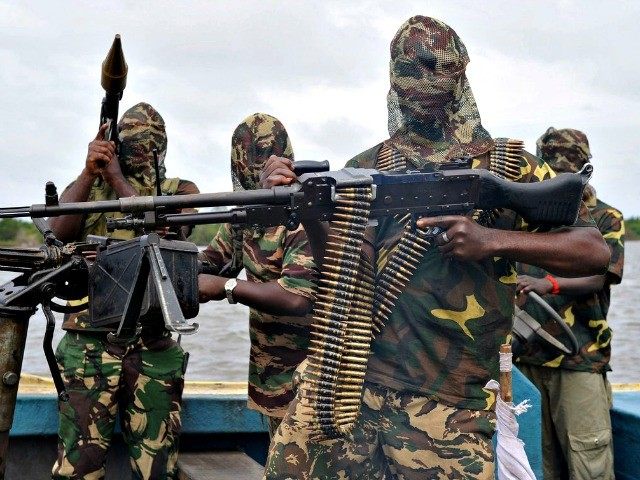The Nigerian branch of the Islamic State, Boko Haram, claws its way off the mat every time international media pronounce it down for the count.
Amnesty International’s new study of Boko Haram violence says the terror gang is perpetrating murders in Cameroon and Nigeria at an accelerating rate, doubling to 380 killings in the Lake Chad area since April. In fact, the death toll might be even higher as attacks in remote areas might not be reported.
Amnesty attributes the killing spree to Boko Haram’s “increased use of suicide bombers – often using women and girls who are forced to carry explosives into crowded areas.”
“Boko Haram is once again committing war crimes on a huge scale, exemplified by the depravity of forcing young girls to carry explosives with the sole intention of killing as many people as they possibly can,” said Amnesty International Director for West and Central Africa Alioune Tine.
“This wave of shocking Boko Haram violence, propelled by a sharp rise in suicide bombings, highlights the urgent need for protection and assistance for millions of civilians in the Lake Chad region. Governments in Nigeria, Cameroon and beyond must take swift action to protect them from this campaign of terror,” Tine added.
Boko Haram is also getting back into the kidnapping business in a big way, abducting 67 people since April, most of them women and young girls. Their grim fates include sexual slavery, brainwashing, and being forced into service as suicide bombers.
In addition to the murders and abductions, the Islamist gang has inflicted a horrendous amount of suffering upon civilians in the Lake Chad region, displacing some 2.3 million and leaving 7 million without sufficient food. 515,000 children are said by Amnesty International to be suffering from acute malnutrition. The constant threat of Boko Haram attacks makes delivering humanitarian aid difficult.
The military forces of Nigeria and Cameroon report a fairly steady stream of victories against Boko Haram, with Nigeria most recently claiming to have killed and injured a “large number of Boko Haram terrorists” in a “successful operation” in Borno State. Hardware confiscated from the slain terrorists included “18 bicycles, 15 bags of grains, 17 gallons of grain, five empty gallons, six cutlasses, a sword, water bottles and pairs of slippers.”
And yet, Boko Haram seems to get by, despite its frequent losses of terrorists, bicycles, cutlasses, and slippers. Amnesty’s report suggests the Nigerian military did manage to inflict some painful losses on Boko Haram, but it shifted its base of operations into Cameroon instead of collapsing, partially accounting for the higher incidence of Cameroon attacks.
Newsweek finds the situation disappointing when measured against Nigerian President Muhammadu Buhari’s repeated declarations that Boko Haram has been “technically” defeated, with the aid of some $593 million in American helicopters and weapons purchased by the Nigerian military.
The Newsweek report notes that Boko Haram has split into at least two, and possibly three, distinct factions — one of them still led by supposedly washed-up chief Abubakar Shekau, the most wanted man in Nigeria for years. Boko Haram has certainly lost most of its territory, and its reliance on female suicide bombers — more than any other terrorist group to date — isn’t exactly the martial glory it promised male recruits during its heyday, but the group remains undeniably dangerous.

COMMENTS
Please let us know if you're having issues with commenting.